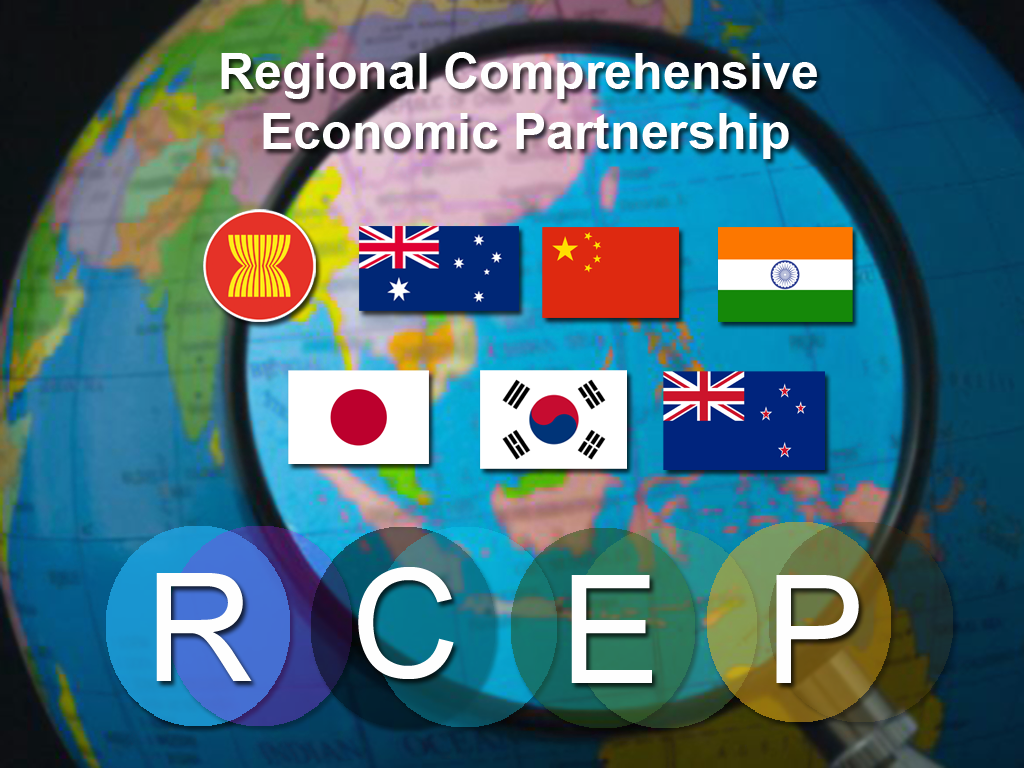Coordination between Bank Indonesia and other Authorities/Institutions
Cooperation and coordination between financial system authorities is implemented bilaterally and trilaterally in order to achieve policy harmonisation, exchange data and/or information as well as in the interest of other coordination measures. Pursuant to Article 10, Paragraph 4 of Act No. 21 of 2011 concerning the Financial Services Authority (OJK) and Article 65, Paragraph 1 of Act No. 24 of 2004 concerning the Deposit Insurance Corporation (LPS), Bank Indonesia is required to assign one member of its Board of Governors to OJK and LPS as Ex-Officio Members of the respective Board of Commissioners. The strategic role of Bank Indonesia's board members as ex-officio members of the Board of Commissioners at both institutions supports coordination and cooperation efforts as well as policy harmonisation between Bank Indonesia and the other institutions.
In addition to assigning ex-officio members, cooperation and coordination amongst the authorities in Indonesia are also conducted from the leadership to technical levels. Coordination between Bank Indonesia and the Indonesian Financial Services Authority (OJK) is facilitated by the Macroprudential-Macroprudential Coordination Forum (MMCF), while the focus of cooperation and coordination between Bank Indonesia and the Deposit Insurance Corporation (LPS) is on guaranteeing and the resolution of troubled banks. Such coordination falls under the Joint Decrees or Memorandums of Understanding signed between both parties as well as the implementation guidelines. In addition, Focal Points have been created in order to bridge the gap between cooperation and coordination activities, including the bilateral and trilateral exchange of data between BI, OJK and LPS.
Under a broader purview, Bank Indonesia also cooperates and coordinates with the Ministry of Finance, Indonesian Financial Services Authority (OJK) and Deposit Insurance Corporation (LPS) under the auspices of the Financial System Stability Committee, which is elaborated in more detail under the Crisis Management Protocol section.
Bank Indonesia Membership of International Forums in the Area of Financial System Stability
In response to the Global Financial Crisis experience of 2008, the G20 declared its commitment to global financial sector reforms in order to strengthen financial system stability, while reducing the opportunity and impact of future crises. The global financial sector reforms mark a major new milestone in terms of strengthening coordination amongst global authorities through establishment of the Financial Stability Board (FSB), which was mandated by the G20 to implement the reforms.
Realising the significant importance of global financial reforms and inter-authority coordination to strengthen domestic financial system resilience, Bank Indonesia actively participates in various strategic international forums in the area of financial system stability, including the Financial Stability Board (FSB) and Basel Committee on Banking Supervision (BCBS).
1. Financial Stability Board (FSB)
Bank Indonesia has been a member of the Financial Stability Board (FSB) since its establishment in 2009. Indonesia’s membership of the FSB was expanded in 2014 to include other financial sector authorities, namely the Ministry of Finance and Indonesian Financial Services Authority (OJK). The participation of Bank Indonesia and other domestic authorities has been optimised at various structural levels of the FSB, from high-level to technical meetings, based on the relevance each authority has to the discussion topic at a particular forum. Furthermore, coordination amongst the authorities has also been strengthened through the establishment of a task force in line with the growing significance of efforts to implement FSB cross-sectoral recommendations that require the support and cooperation of different authorities.
In general, discussion topics on global financial sector reforms cover four core or priority agenda areas, namely building resilient financial institutions, mitigating the too-big-to-fail problem, expanding the supervision and regulation parameters for financial institutions to include market-based finance, as well as reforming the over-the-counter (OTC) derivatives markets. In addition, various other topics are also discussed, such as strengthening macroprudential policy, risk management and deposit guarantees as well as the implementation of quality accounting standards. New emerging risks are also monitored in order to mitigate the risks and their impact on financial system stability, including the risk of declining correspondent banking activity, misconduct risk, FinTech development, cyber risk and crypto assets as well as sustainable finance.
2. Basel Committee on Banking Supervision (BCBS)
Indonesia's membership of the Basel Committee on Banking Supervision (BCBS) is represented by Bank Indonesia as the macroprudential authority and the Indonesian Financial Services Authority (OJK) as the microprudential authority of the financial sector in Indonesia. BCBS is a standard-setting body for prudential banking regulations mandated with strengthening regulations, supervision and global banking practices in order to maintain financial system stability. In general, the status of adoption of the Basel III regulatory framework by BCBS member jurisdictions is considered sound and on schedule. The main elements of Basel III, namely the capital framework and Liquidity Coverage Ratio (LCR) standards, have been adopted by the majority of member jurisdictions in domestic regulations, including Indonesia.
Understanding the urgency of financial sector reforms, Bank Indonesia is also an active member of various standing committees within the Financial Stability Board (FSB) and other regional forums, including:
a. FSB Standing Committee on Assessment of Vulnerabilities (SCAV)
SCAV is made up of central banks from FSB member jurisdictions. Discussions at this forum focus on issues relating to vulnerabilities in the global economy and their transmission to the financial sector.
b. FSB Standing Committee on Supervisory and Regulatory Cooperation (SRC)
SRC membership consists of central banks, supervisory authorities and financial market authorities from G20 members and advanced economy members of the Financial Stability Board (FSB). SRC focuses on macroprudential and microprudential regulation and supervision of the financial sector.
c. FSB Regional Consultative Groups (RCG) Asia
RCG Asia membership includes central banks, supervisory authorities and ministries of finance from FSB member and non-member jurisdictions. RCG Asia represents an outreach forum for non-FSB members to communicate their FSB work program to non-FSB members and thus provide a universal level of understanding amongst authorities around the world concerning emerging and relevant strategic issues in the region.
d. Executives Meeting of East Asia Pacific Working Group on Banking Supervision (EMEAP-WGBS)
EMEAP-WGBS membership includes central banks and supervisory authorities from East Asia and the Pacific, encompassing Australia, China, Hong Kong, Indonesia, Japan, South Korea, Malaysia, New Zealand, the Philippines, Singapore and Thailand. The EMEAP Forum plays an important role in strengthening regional cooperation amongst financial sector authorities, discussing various financial stability issues of common interest.
To strengthen financial system stability and development, Bank Indonesia in conjunction with other financial authorities voluntarily participate in the Financial Sector Assessment Program (FSAP). FSAP is implemented regularly by the International Monetary Fund (IMF) and World Bank, which provide inputs for domestic authorities in terms of maintaining stability and accelerating the financial system, while evaluating compliance to international standards/recommendations.






















































First, please LoginComment After ~